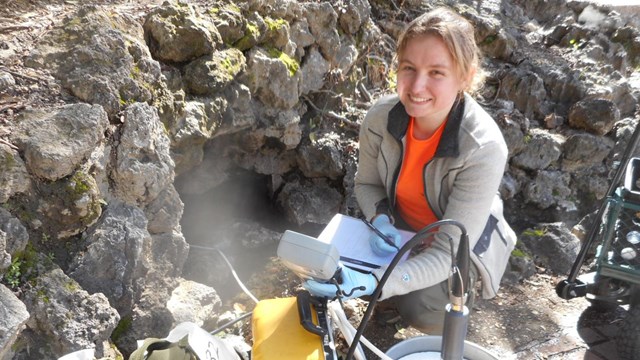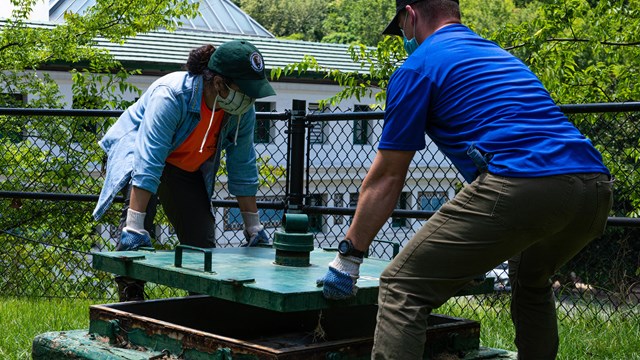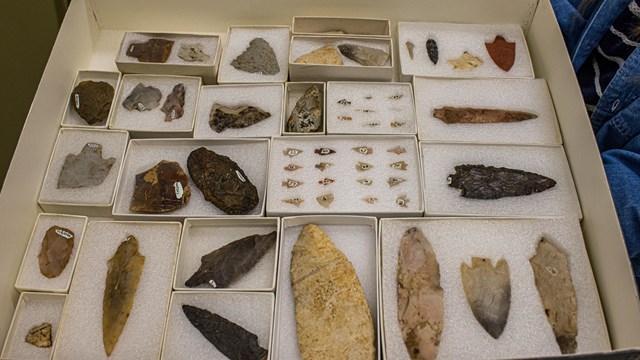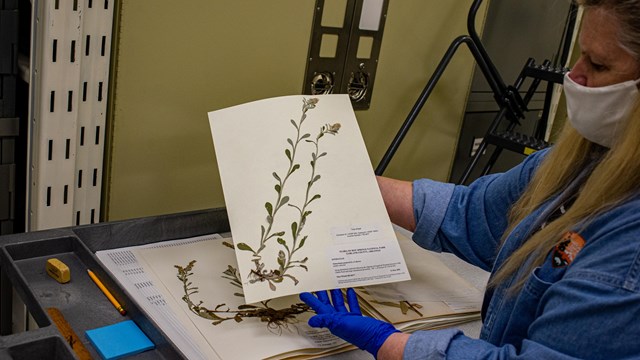POLICY AND GENERAL REQUIREMENTSThe National Park Service (NPS) welcomes your interest in considering national parks for your research site. The NPS is responsible for protecting in perpetuity and regulating use of our National Park areas (parks, monuments, battlefields, seashores, recreation areas, etc.). Preserving park resources unimpaired and providing appropriate visitor uses of parks require a full understanding of park natural resource components, their interrelationships and processes, and visitor interests that can be obtained only by the long term accumulation and analysis of information produced by science. The NPS has a research mandate to provide management with that understanding, using the highest quality science and information. Superintendents increasingly recognize that timely and reliable scientific information is essential for sound decisions and interpretive programming. NPS welcomes proposals for scientific studies designed to increase understanding of the human and ecological processes and resources in parks and proposals that seek to use the unique values of parks to develop scientific understanding for public benefit. When is a permit required?A Scientific Research and Collecting Permit is required for most scientific activities pertaining to natural resources or social science studies in National Park System areas that involve fieldwork, specimen collection, and/or have the potential to disturb resources or visitors. When permits are required for scientific activities pertaining solely to cultural resources, including archeology, ethnography, history, cultural museum objects, cultural landscapes, and historic and prehistoric structures, other permit procedures apply. The park's Research and Collecting Permit Office or Headquarters can provide copies of NPS research-related permit applications and information regarding other permits. Federally funded collection of information from the public, such as when formal surveys are used, may require approval from the Office of Management and Budget. Additional required permits, approvals, and agreementsIn some cases, other federal or state agency permits or approvals may be required before staff can process an application for a Scientific Research and Collecting Permit. Examples include U.S. Fish and Wildlife Service threatened and endangered species permits and migratory bird permits and approvals by an Institutional Animal Care and Use Committee. It is the responsibility of the principal investigator to provide NPS with copies of such permits when they submit an application. Applicants are encouraged to contact park staff to determine if additional permits may be required in conjunction with a proposed study. Who may apply?Any individual may apply if he/she has qualifications and experience to conduct scientific studies or represents a reputable scientific or educational institution or a federal, tribal, or state agency. When to apply?We recommend that you apply at least 90 days in advance of your first planned field activities. Projects requiring access to restricted locations or proposing activities with sensitive resources, such as endangered species or cultural sites, usually require extensive review and can require 90 days or longer for a permitting decision. Simple applications can often be approved more quickly. How and where to apply?An individual may obtain application materials via the Internet (find “Research Permit and Reporting System” at http://science.nature.nps.gov/research or through www.nps.gov) or by contacting the park in which the work will be conducted. Addresses for NPS areas are listed on the NPS Internet web site (www.nps.gov) or may be obtained by contacting the NPS Public Affairs Office via telephone number 202-208-4747. All application materials must be submitted to the NPS area in which you plan to work. You may submit this information via Internet or traditional postal service. Study proposalsApplications for Research and Collecting Permits must include a research proposal. Proposals must include, as appropriate, all elements outlined in the separate document Guidelines to Researchers for Study Proposals. Review of proposalsEach proposal will be reviewed for compliance with National Environmental Policy Act (NEPA) requirements and other laws, regulations, and policies. The superintendent may also require internal and/or external scientific review, depending on the complexity and sensitivity of the work being proposed and other factors. You can expedite review of your proposal by providing photocopies of existing peer reviews, or by providing names, mailing addresses, and email addresses of persons that you wish to recommend to review your proposal. Specific details about the review process may be included with the application materials provided by that park. Facilitating a favorable decisionThe superintendent makes a decision to approve a research and collecting permit based on an evaluation of favorable and unfavorable factors (see examples, below), and on an assessment of perceived risks and benefits. While park managers will work with applicants to arrive at a mutually acceptable research design, there may be activities where no acceptable mitigating measures are possible and the application may be denied. Favorable factorsThe proposed research:
Unfavorable factorsThe proposed research:
Park ResponseThe principal investigator should receive notice of the approval or rejection of the application by written correspondence via mail, electronic mail, or facsimile. If modifications or changes in a study proposal initially deemed unacceptable would make the proposal acceptable, the park may suggest them at this time. If the application is rejected, the applicant may consult with the appropriate NPS Regional Science Advisor to clarify issues and assess the potential for reconsideration by the park. Permittee responseIf your permit request is approved by the park, you will receive a copy of the permit that you must sign and return to the park via mail or fax. Once the park receives a copy of the permit that you have signed, appropriate NPS officials will validate it and return an approved copy to you. You must carry a copy of the approved permit at all times while performing your research or collecting in the park. Permit stipulationsGeneral Conditions (requirements and restrictions) will be attached to all Research and Collecting Permits issued. These conditions must be adhered to by permit recipients. Additional Park-specific Conditions may also be included that address unique park resources or activities. An NPS permit is valid only for the activities authorized in the permit. The principal investigator must notify the NPS in writing of any proposed changes. Requests for significant changes may necessitate re-evaluation of the permit conditions or development of a revised proposal. Access permit requirementsSome NPS areas require access permits for off-road travel, camping, and other activities. Access to many areas is limited and popular destinations can be booked several months in advance. Please contact the park’s Research and Collecting Permit Office to obtain information on any needed access permits. Research products and deliverablesResearchers working in NPS areas are required to complete an NPS Investigator’s Annual Report form for each year of the permit, including the final year. The NPS maintains a system enabling researchers to use the Internet to complete and submit the Investigator’s Annual Report. NPS staff will contact permit holders near the beginning of each calendar year to request the prior year’s report and explain how to access and use the system. Investigator’s Annual Reports are used to consistently document accomplishments of research conducted in parks. Principal investigators are responsible for the content of their reports. NPS staff will not modify reports received unless requested to do so by the principal investigator responsible for the report. Privacy Act and Paperwork Reduction ActNPS regulations (36 CFR 2.1) prohibit possessing, destroying, injuring, defacing, removing, digging, or disturbing from their natural state in any form animals, plants, paleontological, or mineral resources. NPS regulations (36 CFR 2.5) require researchers wishing to conduct research involving acts prohibited by other regulations, such as CFR 2.1, to obtain a specimen collection permit. The National Parks Omnibus Management Act of 1998 (Public Law 105-391) encourages use of parks for science, encourages publication of the results of research conducted in parks, and requires that research conducted in parks be consistent with park laws and management policies. This law also requires that research be conducted in a manner that poses no threat to park resources or public enjoyment. National Park Service Management Policies state that research activities that might disturb resources or visitors, that require the waiver of any regulation, or that involve the collection of specimens may be allowed only pursuant to terms and conditions of an appropriate permit. 
Research & Science
Learn more about the research permitting process and responsibilities at Hot Springs National Park. 
Researcher Safety
Learn about safety precautions, dangerous wildlife, and hazardous conditions in the Park. 
Curatorial Responsibilities
Learn what to do before you begin collecting and once you are finished. 
Material Transfer Responsibilities
Learn more about requesting and sending museum and collected specimens. |
Last updated: September 8, 2021
